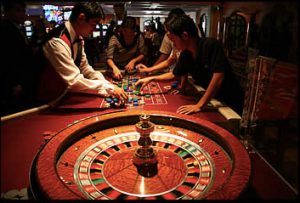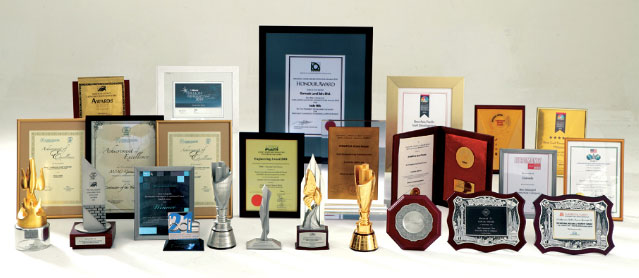9 more great English tips taken from my notes from over 2500 classes with students that speak Portuguese.
We start with 4 verbs that can cause problems for Portuguese speakers.
These are what I call Double Verbs in my 2016 eBook, that is there is 1 verb in Portuguese but there are two, or sometimes more, in English.
1 perceber = to notice and to realise
2. apostar = to gamble and to bet
3. alcançar = to achieve and to reach
4. recuperar = to recuperate and to recover
Then we have 2 important verbs that are very common in everyday English
5. to wonder
6. to slim down
Finally, 3 nouns that are similar to what I call “Double Verbs” that can cause problems for Portuguese speakers.
7. vendedor = the seller = the salesperson
8. sabor = taste and flavour
9. seguro = secure and safe
1 perceber = to notice and to realise
These two verbs are very similar and the difference is very subtle.
When you realise something it is like a light bulb going off in your head, an “Aha!!” moment. It is quite an emotional response to something.

I thought that my phone was charging then I realised it wasn’t plugged in. [A ha!]
I thought my shoes were fine when I was walking in the rain then I realised there was a hole in them. [A ha!]
I tasted my dessert and it was horrible, I realised I put in salt instead of sugar. [A ha!]
All of these examples are A-ha! moments. That means to realise. You have a strong emotional reaction.
To notice is not emotional it is NOT the Aha! moment. You don’t have an emotional reaction.
I noticed that we didn’t have any milk.
I noticed a new billboard when I was driving to work.
I noticed my garage door was open.
Now look at this example:
Our dog was in the kitchen then I realised our garage door was open. That is an “aha!” moment, a light bulb goes off.
Related to this is the verb to perceive, which means to have an opinion or to believe something
As we have seen many times in my two books and other posts on here, if the English verb is very similar to the Portuguese verb then in general it will be more formal.
So to perceive is formal, legal language or perhaps used in science or in reports.
We perceived an increase in bacteria in the experiment.
Europe is perceived as expensive to visit.
How did you perceive him?
How do people perceive you? This might be asked in a job interview, it is a more formal way of asking what do people think of you? What is their opinion of you
Sometimes I am perceived as a serious person.
Finally, a common expression in English for to realise is the penny drops. This means you suddenly realise something, it probably was not obvious to you before but now it is.
I was studying with the television on and then the penny dropped that it was distracting me this means I was studying with the television on and then I realised that it was distracting me.
I was trying to paint my house and then the penny dropped that I should hire a professional this means I was trying to paint my house and I realised that I should hire a professional.
2 Apostar = to gamble and to bet
These verbs are more or less the same thing, and again the difference is subtle.
You gamble on something that is purely down to luck such as roulette, a national lottery, games where you roll a dice etc

I gambled on black on roulette.
On the TV game show, the contestant gambled and won a car.
Or it can be used in everyday situations where you are hoping for good luck.
I gambled when I left my umbrella at home but I was fine as it didn’t rain.
I studied Spanish history as I gambled on it appearing on my exam means I hoped for good luck and that Spanish history would appear on the exam.
Gambling is a more general term, people talk about problem gambling, gambling addiction.
You bet on something where you make a decision on what might happen such as sporting events.
I bet on Real Madrid to win the Champions League.
I bet on Roger Federer to win Wimbledon.
COMMON MISTAKE
I don’t have lucky we say I don’t have luck, I am not lucky, or I am unlucky.
3 Alcançar = to achieve and to reach
You reach something physical. There is a physical distance involved.
We reached the traffic lights.
We finally reached the beach.
The group reached the top of the mountain.
to achieve in general means to succeed, especially when you work for something.
I achieved my goal.
I have many achievements on my CV.
My greatest achievement at my last job was when I was the top salesperson on my team.

COMMON MISTAKES
The car achieved the entrance = The car reached the entrance
The water achieved our door = The water reached our door
4 Recuperar = to recuperate and to recover
to recuperate is formal and we normally use it when talking about health.
My uncle is recuperating in hospital.
My grandmother is recuperating at home after leaving hospital.
In general we say recover.
You recover after exercise.
The economy in Ireland is recuperating = The economy in Ireland is recovering.
We need to recover our investment.
They will recover their losses
You might need to recover after a good party!
5 to wonder
to wonder means to think about something and to be curious about it
This is an important verb as there isn’t a direct translation from Portuguese. Dictionaries will tell us that to wonder is imaginar in Portuguese, but I believe it is slightly different.
I have noticed that a lot of my students will say “I am curious about” or “I am curious…” if you think like that in Portuguese in your mind then the verb to use is to wonder.

It is very common in everyday situations or business English as it is polite.
Hello, I was wondering if you have any rooms available?
This is polite, I want to know or I would like to know can sound a little rude, or aggressive depending on the tone used. This is especially true in writing where it is more difficult to judge tone so I was wondering is good here.
I was wondering if you offer a discount for bulk orders? If you say I want to know then this sounds like a demand.
I don’t see John, I wonder where he is? means I am curious and would like to know where John is, I am thinking about where he might be.
I wonder where I put my phone? means I don’t know where my phone is and I am curious to know where it is.
The shop has closed down. I wonder what will happen to the building? means I am curious to see what will happen in the future.
I wonder what they will do with all the extra tables they have? I am thinking about this and am curious to discover what they will do in the future.
The key idea here is to be curious about the answer.
There are many examples of to wonder in famous songs, here is a good example of this in the very popular song Lemon Tree by Fool’s Garden
The famous lyrics of the chorus are:
I wonder how
I wonder why
Which mean, more or less:
I am thinking about it and I am curious why
I am thinking about it and I am curious how
6 to slim down
to slim down means to lose weight.
She has slimmed down a lot.
I would like to slim down.
In general slim is a compliment.
You look great! Very slim!
Note: thin can be negative.
He is sick and he looks very thin.
He has cancer that’s why he is slim. = He has cancer that’s why he is thin.
Oh my God, she looks very thin! this might not be a good thing, she might look unhealthy.
He was very slim before he died = He was very thin before he died.
Now let‘s look at some vocabulary that causes problems for Portuguese speakers.
7 Vendador = the seller = the salesperson
In general:
vendador = the salesperson, if they DO NOT own the product, and they usually work in a shop or store.
We also say the sales assistant, sales advisor, but often natives will simply say the guy in the shop or the girl in the shop or even just the guy or the girl.
The person in a shop like an Apple Store is a sales assistant, or in retail in general, when buying a car at a showroom, not a garage as that’s where cars are repaired, we call them the salesman or the saleswoman.
However, vendador = the seller if they own the product.
For example, we call someone a seller if they are selling a car, a house or an item on websites like craigslist, donedeal in Ireland, eBay, or mercado libre in Brazil etc.
Again as we have seen vendor will be formal, it is an old word not really used in everyday speaking. It might be used in legal documents, for example when you buy a house.
However, we do of course use vending machines

8 sabor = taste and flavour
Yet another very subtle and confusing pair of words!
Taste describes the sense we as humans get from a food or drink, for example, bitter, sweet, sharp, mild.
Lemon has a bitter taste
Those onions have a sweet taste
Or to describe an actual or real food or drink.
I don’t like the taste of garlic.
This sauce has a cheesy taste means there is probably actual or real cheese in the sauce.
Flavour will be the name we give the taste of a food. Chocolate, strawberry, or vanilla flavour ice-cream for example:
Chocolate taste ice-cream = Chocolate flavour ice-cream.
There might not be actual or real chocolate in it, it might be an additive, so we say flavour.
Salt and Vinegar flavour crisps this means that there might not be actual salt and vinegar on them.

However:
Seawater has a salty taste this means there is real or actual salt in the water.
These potato crisps/ potato chips have a cheese and onion flavour means the name of the flavour is cheese and onion there isn’t actual cheese or actual onions in it.
Related to this are two adjectives tasty and tasteful.
tasty is for food or drink.
We can say:
a meal is tasty
this ice cream is tasty
Tasteful is not used to describe food. It is used to describe something attractive or stylish.
This room is tasteful.
The bedroom is tastefully decorated.
If something is not attractive or stylish or it might offend somebody you can say:
That sketch was not tastefully done.
The painting was not tasteful.
COMMON MISTAKE
That pizza is very tasteful = That pizza is very tasty
9 seguro = secure and safe
These words are very similar so the difference is very subtle.
secure is related to an attack, the threat can’t enter.
We talk about IT security, so hackers can’t enter your system.
We have security guards in buildings, shopping centres [shopping malls in the USA] to stop threats from entering.
A building is secure so threats like thieves can’t enter.
A building is safe if the structure is good, it won’t collapse, or to use a phrasal verb, it won’t fall down.
Dublin is a secure city = Dublin is a safe city this means that you probably won’t be robbed or attacked in the city.
During a war you might say:
Aleppo in Syria is now secure. This means that threats cannot enter the city of Aleppo now.
I feel unsecure walking in Rio = I feel unsafe walking in Rio.
A very useful word related to this is dodgy.
dodgy means something or someone you can’t trust
That guy is dodgy means you can’t trust him.
This chair is dodgy means you can’t trust the chair, so it might break or collapse.
That street looks dodgy means you can’t trust it so it might be dangerous or it might be unsafe.
You can read more tips here, but the most important tips and large grammar points are in my 2016 eBook Eliminate the 63 Most Common Mistakes Portuguese Speakers Make in English which you can read more about hereand you can buy in PDF, MOBI and EPUB format on this site here for €6.99.
In 2020 I converted this eBook into a video course and added 40% more content. You can read about this video course and watch free videos here.
It is available to buy on Udemy for €29.99/69.99R$ here.
Did you learn anything or have any questions? You can tell me in the comments and please feel free to share this post!
